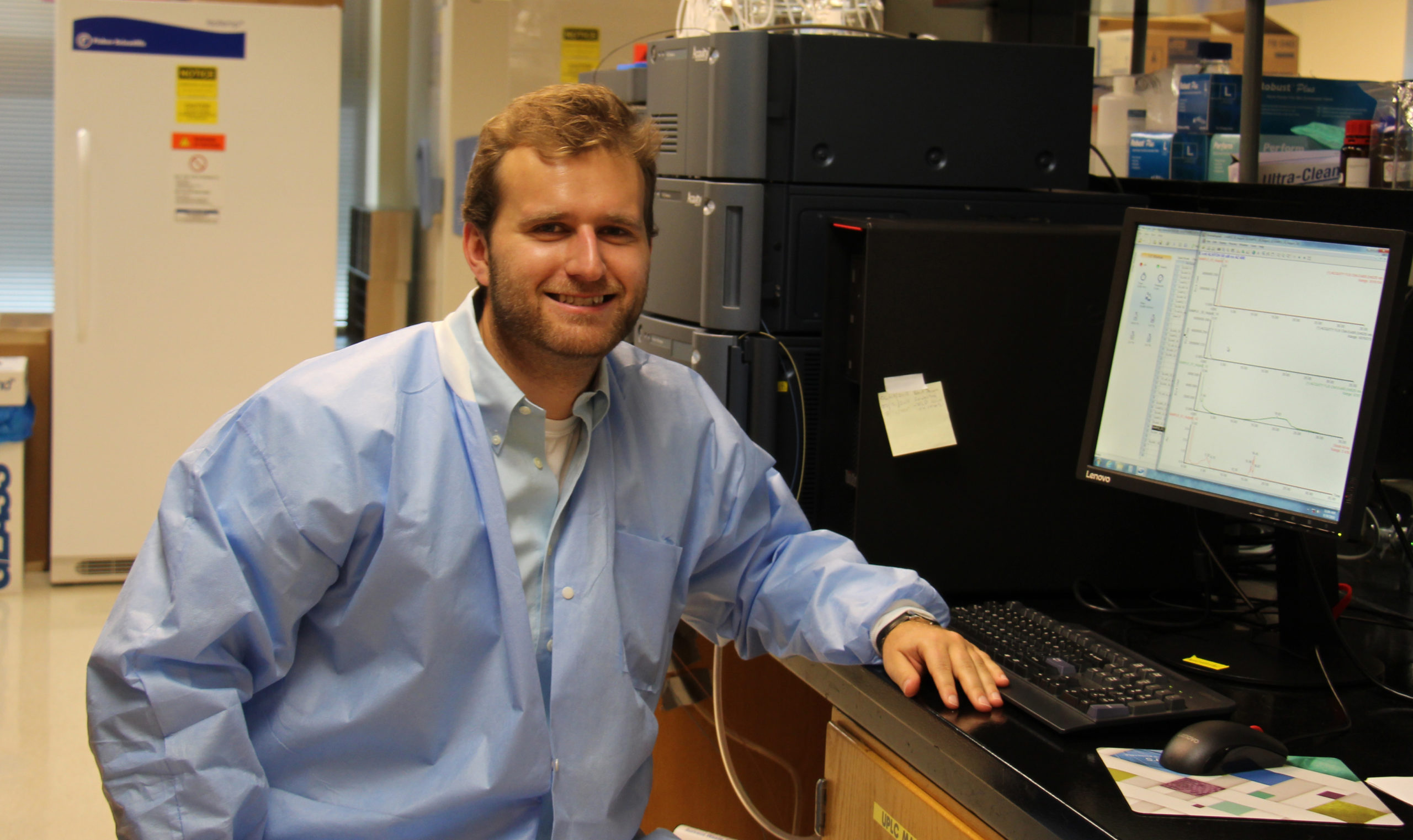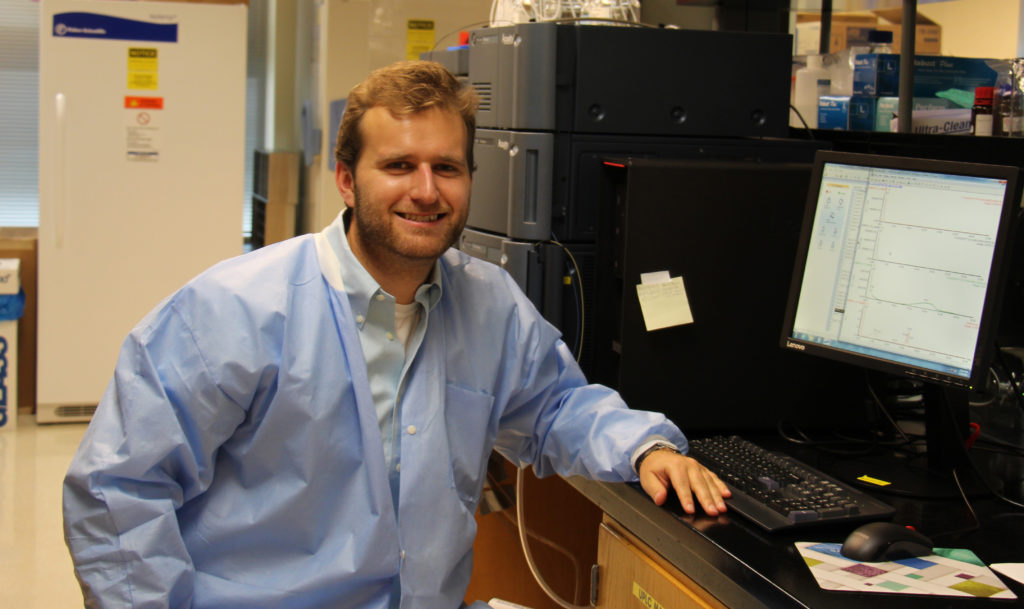Trainee Spotlight: Josh Butler


New T32 trainee Josh Butler is a third year Ph.D. student in Belen Cassera‘s laboratory. He is from Front Royal, Virginia and completed his B.S. in chemistry at James Madison University in Harrisonburg, Virginia.
Butler decided to pursue his graduate degree at the University of Georgia because of the Integrate Life Sciences program which offers the opportunity to explore a range of research topics. The same interdisciplinary aspect is what he found appealing about the Center for Tropical and Emerging Global Diseases and ultimately why he joined a lab within this department.
“There is no shortage of resources here, ranging from state of the art instrumentation and core facilities to people that are willing to mentor and train successful scientists,” said Butler. “Coming from a smaller institution, I had never really seen anything to this scale and I knew it was something I wanted to experience and become a part of.”
Research Focus
Broadly, Butler’s research is focused on antimalarial drug discovery. More specifically, he is using antimalarial natural products as tools to discover novel drug targets in the malaria parasite Plasmodium falciparum.
Nearly 220 million people have malaria, and it kills nearly half a million people each year. Plasmodium falciparum causes the most severe forms of malaria, such as cerebral malaria, which can lead to brain damage, coma, and death, and placental malaria, which can be life-threatening to both mother and fetus.
“I chose this research because not only does it contribute positively to the global campaign of malaria eradication, but from a training standpoint it would also provide a solid foundation for a career further researching and developing antimicrobial therapies in general.”
Capstone Experience
Each T32 trainee is provided with the opportunity to pursue a capstone experience. Butler hopes to do an internship with a pharmaceutical industry research group that is actively performing anti-parasitic research to experience how the type research he does as a graduate student can translate outside the realm of academia.
“Private-public collaboration in malaria research has really driven drug discovery research in a positive direction and I would like the opportunity to experience that first hand and develop acumen to engage in that type of research in the next stage of my career.”
Future Career Goals
“I would like to continue working in a field of scientific research which can positively impact people’s lives, whether it be through a biomedical or biotechnical avenue.”
Advice for Aspiring Scientists
“Don’t be afraid to fail or be wrong. Learn from it and use it to keep pushing forward. Try to find positives in the negatives.”
